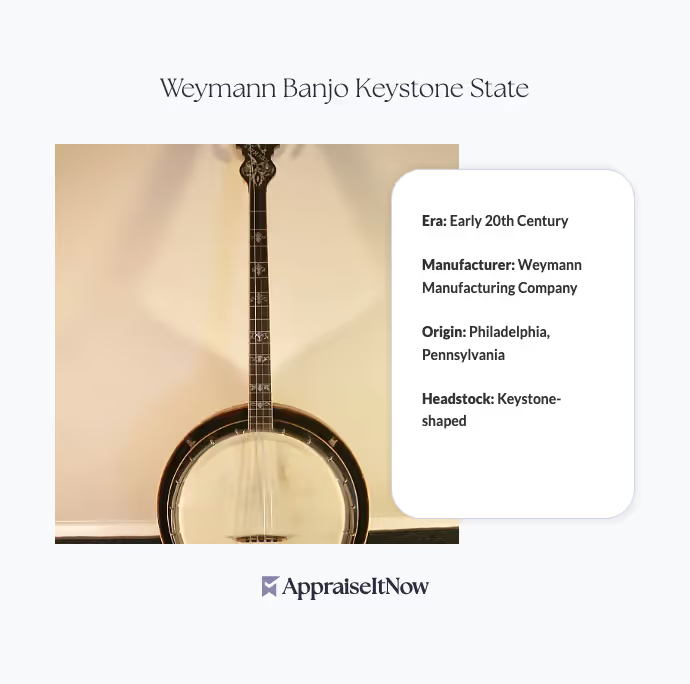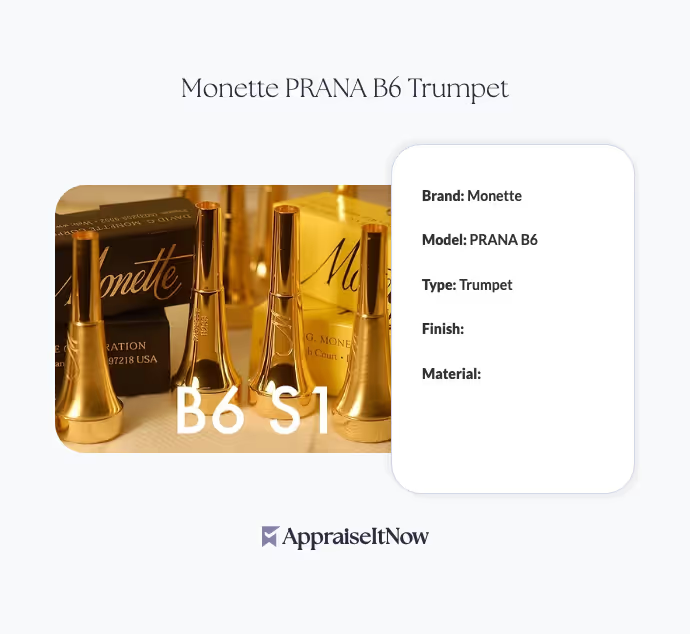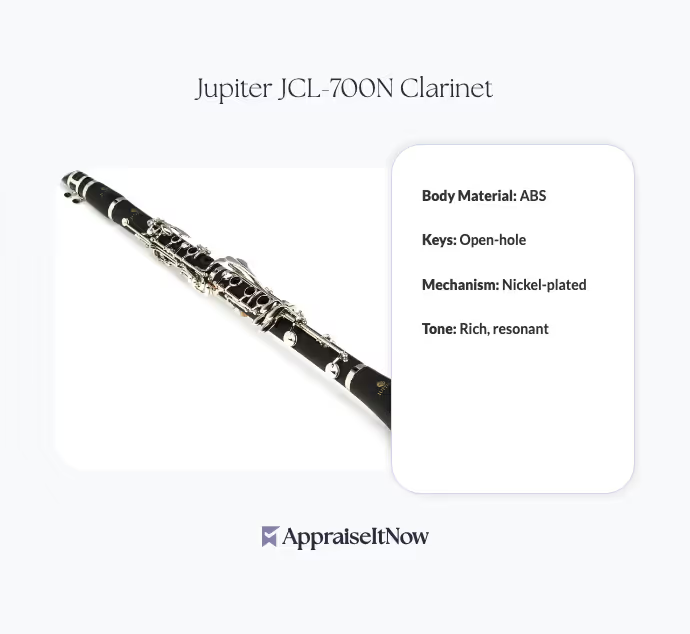<h1>How to Get Your Weymann Banjo Keystone State Appraised</h1>
<p>The <strong>Weymann Banjo Keystone State</strong> stands as one of the most sought-after vintage banjos among collectors and musicians, commanding appraisal values between <strong>$2,000 and $4,000</strong> depending on condition, originality, and provenance. If you're evaluating one of these Philadelphia-crafted instruments—whether for insurance purposes, estate planning, or sale—understanding what drives its value helps you make informed decisions about this significant musical investment.</p>
<h2>The Weymann Legacy and Market Appeal</h2>
<p>Produced by the <strong>Weymann Manufacturing Company</strong> in Philadelphia, Pennsylvania during the early 20th century, the Keystone State model represents the pinnacle of American banjo craftsmanship. Introduced in <strong>1910</strong>, this instrument emerged during a golden era of banjo manufacturing when American makers competed globally for quality and innovation. The company's reputation for excellence positioned the Keystone State among the most prized vintage banjos in today's collector market, particularly when considering broader questions about whether <a href="/blog/appraising-musical-instruments-determining-the-worth-of-melodic-investments">old banjos are worth money</a>—the answer is an emphatic yes for quality examples like the Weymann.</p>
<div class="callout tip"><p><strong>Historical Context</strong></p>
<p>Weymann banjos from this era represent a finite supply, as production occurred during a specific window before instrument manufacturing shifted geographically and economically in America.</p></div>
<p>The Keystone State's distinctive appeal lies in its <strong>meticulous attention to detail</strong> and <strong>premium craftsmanship</strong>. Unlike mass-produced instruments that followed, the Weymann featured handcrafted components and carefully selected materials that resulted in instruments with warm, resonant tones that actually improve with age. This stands in marked contrast to concerns some have about vintage instruments, yet evidence overwhelmingly supports that <strong>vintage banjos are indeed good</strong>—particularly those from reputable makers like Weymann—and represent solid investments for serious players and collectors alike.</p>
<h2>What Makes Your Weymann Keystone State Valuable</h2>
<h3>The Distinctive Design Elements</h3>
<p>Your Weymann Keystone State's value stems largely from its <strong>distinctive Keystone-shaped headstock</strong>, a design trademark that immediately identifies the instrument and reflects <strong>premium craftsmanship</strong> evident throughout. The headstock's shape wasn't merely aesthetic—it represented functional engineering combined with visual distinctiveness that helped Weymann command respect among competing <a href="/blog/appraising-musical-instruments-determining-the-worth-of-melodic-investments">banjo brands</a> of the era.</p>
<p>Beyond the headstock, several technical specifications contribute to the instrument's desirability. The construction quality, wood selection, and hardware durability characterize instruments built during Weymann's peak production years. These elements directly influence appraisal values, with originality commanding significant premiums over modified examples.</p>
<h3>Condition and Originality Factors</h3>
<p>When evaluating your Weymann Keystone State, professional appraisers examine several specific condition markers that affect valuation:</p>
<ul>
<li><strong>Original finish and hardware</strong> intact and unaltered</li>
<li><strong>Tone quality</strong> maintained through proper care and storage</li>
<li><strong>Structural integrity</strong> with no cracks, major repairs, or refinishing</li>
<li><strong>Original strings and components</strong> where possible</li>
<li><strong>Absence of modifications</strong> that alter the instrument's original character</li>
</ul>
<p>The question of what constitutes "the best banjo brand" remains subjective, but Weymann consistently ranks among top-tier manufacturers, particularly for pre-1930 models. This heritage directly translates to stronger appraisal values compared to lesser-known contemporaries. Your instrument's proximity to original configuration significantly impacts whether it falls toward the $2,000 floor or the $4,000 ceiling of current market estimates.</p>
<h2>Understanding Current Market Dynamics</h2>
<p>The vintage banjo market has experienced steady appreciation as collectors increasingly recognize these instruments as both functional musical tools and valuable <a href="/types/memorabilia-and-collectibles">memorabilia and collectibles</a>. The average price of a banjo varies tremendously—modern student instruments start under $500, while professional-grade contemporary banjos range from $1,500 to $5,000. Your vintage Weymann occupies a distinct niche where historical significance and playability combine to create collector demand.</p>
<div class="callout note"><p><strong>Market Insight</strong></p>
<p>Documented playing history with notable musicians or appearance in specific musical traditions can command premiums of 15-25% above standard valuation estimates.</p></div>
<p>Several factors influence current Keystone State valuations. Limited global production worldwide means supply remains constrained, supporting stable to appreciating values. The broader vintage music instrument market has strengthened considerably, with younger collectors discovering these instruments' superior tonal qualities and craftsmanship compared to modern alternatives. When considering how to find out what a vintage item is worth, professional appraisers bring specialized expertise in the vintage banjo market—a critical advantage over generic valuation approaches.</p>
<h2>Authentication and Provenance Documentation</h2>
<p>Establishing your Weymann Keystone State's authenticity requires careful examination of manufacturing details, serial numbers (if present), and construction methods specific to Weymann's production practices. The company maintained consistent quality standards that experienced appraisers recognize, though variations exist across production years. Comprehensive documentation strengthens your appraisal's credibility significantly.</p>
<p>Your collection should include original cases, instruction materials, or purchase documentation if available. Provenance records—particularly evidence of the instrument's geographic location and ownership history—add context that appraisers value when establishing fair market value. Photographs from multiple angles, documentation of any repairs, and notes about playing history all contribute to a thorough appraisal.</p>
<p>Professional appraisers specializing in <a href="/blog/appraising-musical-instruments-determining-the-worth-of-melodic-investments">musical instruments</a> understand what to check when evaluating vintage banjos, examining factors that general appraisers might overlook. This expertise ensures accurate valuation reflecting the instrument's true market position.</p>
<div class="callout tip"><p><strong>Documentation Advantage</strong></p>
<p>Maintaining detailed records of any maintenance, repairs, or playing history creates a comprehensive asset profile that enhances appraisal accuracy and buyer confidence.</p></div>
<h2>Philadelphia Manufacturing and Rarity Considerations</h2>
<p>The <strong>Weymann Manufacturing Company's Philadelphia headquarters</strong> represents significant historical context. Philadelphia's status as a major American musical instrument production center during the early 20th century attracted skilled craftspeople and established quality standards that persist as value markers today. Your Keystone State represents tangible evidence of Philadelphia's manufacturing heritage and American instrument-making excellence.</p>
<p>The company's limited production runs worldwide mean surviving examples represent an increasingly precious subset of early 20th-century American craftsmanship. Each Weymann Keystone State encountered today likely represents one of perhaps hundreds remaining in collectible condition—a scarcity factor that supports valuation longevity. This contrasts sharply with mass-produced instruments of the era, many of which have disappeared or deteriorated beyond recovery.</p>
<h2>Professional Appraisal Services for Your Weymann</h2>
<p>When determining whether your Weymann Keystone State requires professional appraisal, consider these situations:</p>
<ul>
<li><strong>Insurance documentation</strong> for homeowner or specialty coverage</li>
<li><strong>Estate planning</strong> requiring formal valuations for property distribution</li>
<li><strong>Preparing for sale</strong> through dealers, auctions, or private transaction</li>
<li><strong>Verification of authenticity</strong> before significant purchases</li>
<li><strong>Divorce or legal proceedings</strong> involving asset division</li>
</ul>
<p><strong>AppraiseItNow</strong> connects you with credentialed appraisers experienced in vintage musical instrument valuation. Our network includes professionals certified by recognized organizations (AAA, ISA, ASA, CAGA, AMEA) who deliver <strong>USPAP-compliant appraisals</strong> suitable for insurance claims, legal proceedings, and financial documentation. The appraisal process involves detailed examination, research into comparable market sales, condition assessment, and comprehensive reporting that establishes your instrument's fair market value through professional standards.</p>
<h2>Storage and Preservation for Value Retention</h2>
<p>Protecting your Weymann Keystone State's investment value requires proper care. Unlike concerns about whether certain instruments are harder to maintain than others, vintage banjos reward consistent, appropriate storage that prevents environmental damage. Climate-controlled spaces with stable temperature and humidity—ideally 50-70°F and 40-50% relative humidity—protect the wood and hardware from deterioration that diminishes both playability and monetary value.</p>
<p>Proper storage prevents common damage: wood checking from humidity fluctuations, metal corrosion from moisture exposure, and finish degradation from direct sunlight. These preservation practices directly correlate with maintaining your appraisal value, as instruments showing environmental stress command significantly lower valuations. Our comprehensive guide on <a href="/blog/how-to-properly-store-and-maintain-your-memorabilia-and-collectibles">properly storing collectible musical instruments</a> outlines specific protocols for maintaining condition and value across decades of ownership.</p>
<h2>Distinguishing Your Weymann from Other Vintage Banjos</h2>
<p>Understanding what specifically characterizes the Keystone State versus other Weymann models or contemporary competitors helps contextualize its valuation. The Keystone State's specific innovations and design choices positioned it as a premium offering even within Weymann's product line. When comparing vintage banjo options, the Weymann brand consistently emerges as a top-tier choice, though individual models command different price points based on rarity and condition.</p>
<p>The broader vintage instrument market includes excellent examples from other makers—A.D. Flint, Vega, and others produced quality instruments—yet the Weymann Keystone State maintains distinct positioning. Its balance of historical significance, sound quality, and collector demand creates reliable appraisal values that reflect its special place in American musical instrument history.</p>
<div class="callout note"><p><strong>Key Takeaway</strong></p>
<p>A certified appraisal of your Weymann Banjo Keystone State provides essential documentation for insurance, sale, or estate planning purposes, ensuring accurate valuation of this significant musical collectible and protecting your investment through professional expertise and standardized reporting.</p></div>
















